Compared the US where most things are thrown into a huge dumpster, I truly admire the way the Swiss recycle.
Back in Ohio, I did recycle as much I could. In fact, it was easy since I did not need to sort items, such as green wine bottles and newspapers. I was allowed to dump all the recyclable things into the car, drive up to a recycling station, and throw everything into the dumpster, which would then be collected and brought to a sorting center. Sadly, even this simple step wasn’t popular at all in Ohio.
So, I was so happy to find “recycling walls” at most grocery stores in Switzerland. The wall has several holes in different sizes for pet bottles, glass bottles, plastic milk bottles, batteries, and cans to be recycled.
It makes me smile to see a little boy having fun throwing old batteries into the hole which were handed to him by his mother. A grandma greeted me as we both pushed bottles through the recycling wall.
Many towns collect recyclables in above ground bins, as well as underground containers.
In my town, several tubes are sticking out like chimneys on the ground level, where people will sort and drop recyclables into the ground. Normally, those tubes are labeled as "Brown glass", "Green glass", "White glass", and "Cans/Aluminum".
But watch out: The allowed recycling hours are sacred and those who neglect them might be pointed out.
In my household, even the 7 cm/2.8 in aluminum lid of a yogurt cup is licked, washed, and recycled.
"Since I was little, I was told that burning aluminum as trash is very toxic, so it needs to be recycled", said Dimitri, licking the thin lid of his favorite pineapple yogurt.
I nodded but wondered how it would be recycled. (Strangely, the lid and outer paper label of a yogurt cup are recycled, but not the plastic cup itself.)
Also, plastic shopping bags are reused but not recycled. Small plastic bags are even free, if you ask the cashier. Some bring their own shopping bags or reuse paper bags which are sold at the check-out for a very minimum price, usually 30 Rappen (Swiss cents).
It is odd for me coming from Japan, the country hit by an oil shock in 1973, because reducing and recycling plastic bags was one of the first recycling movements started among housewives. Also, paper and cardboard is collected by a non-profit organization once a month in my neighborhood.

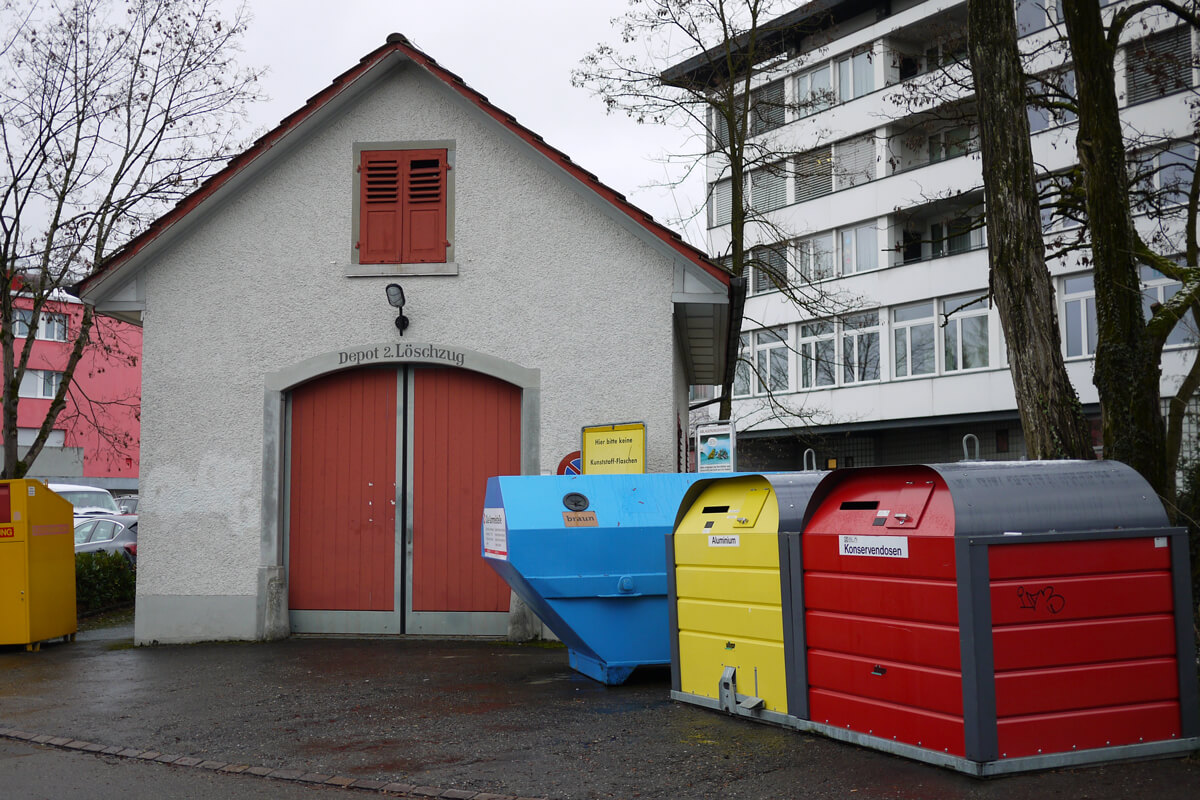
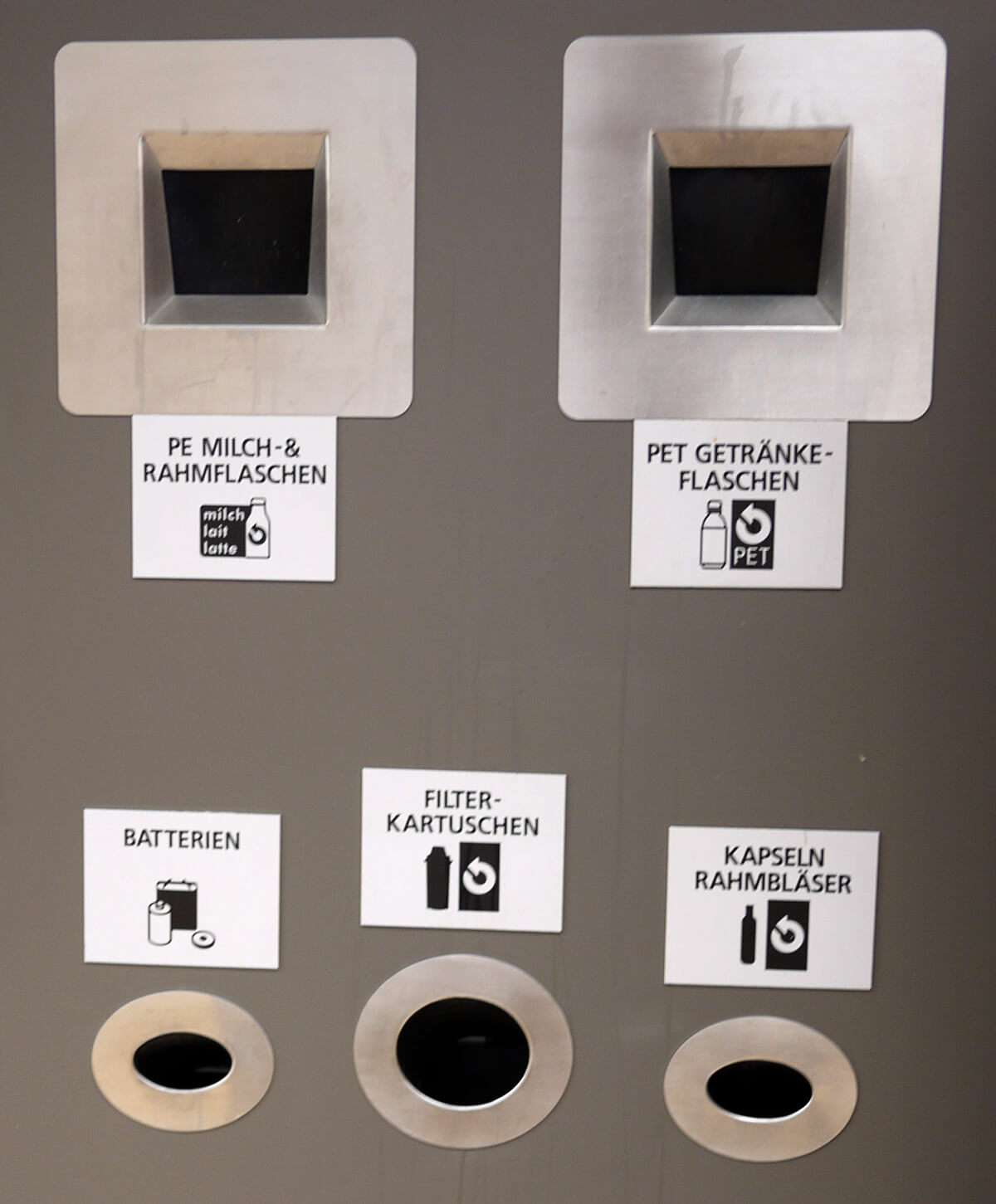
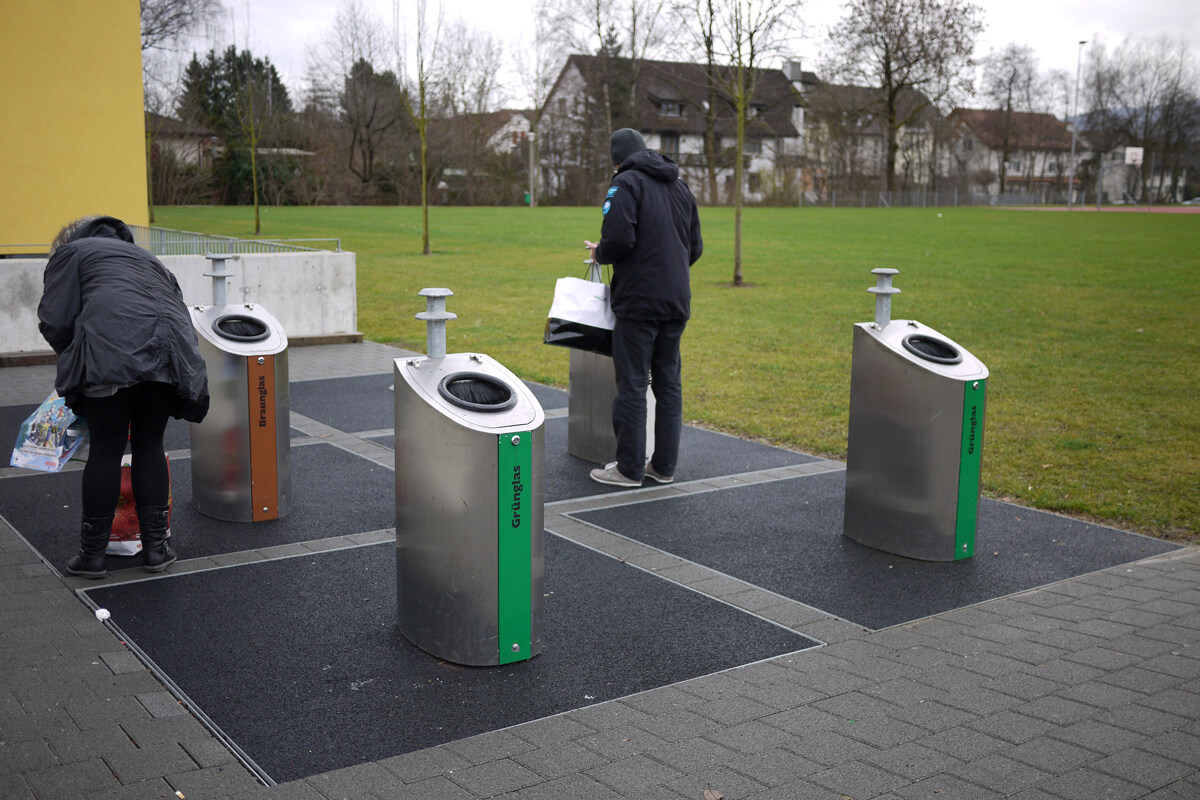
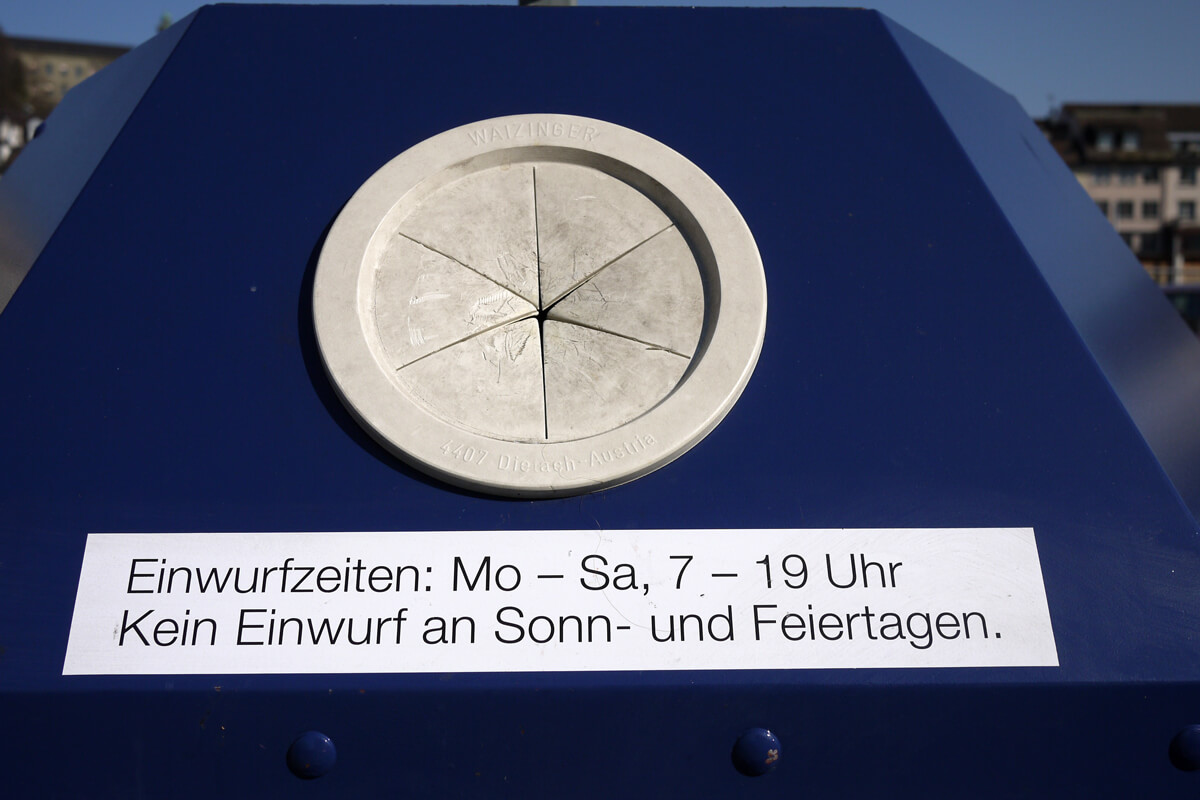
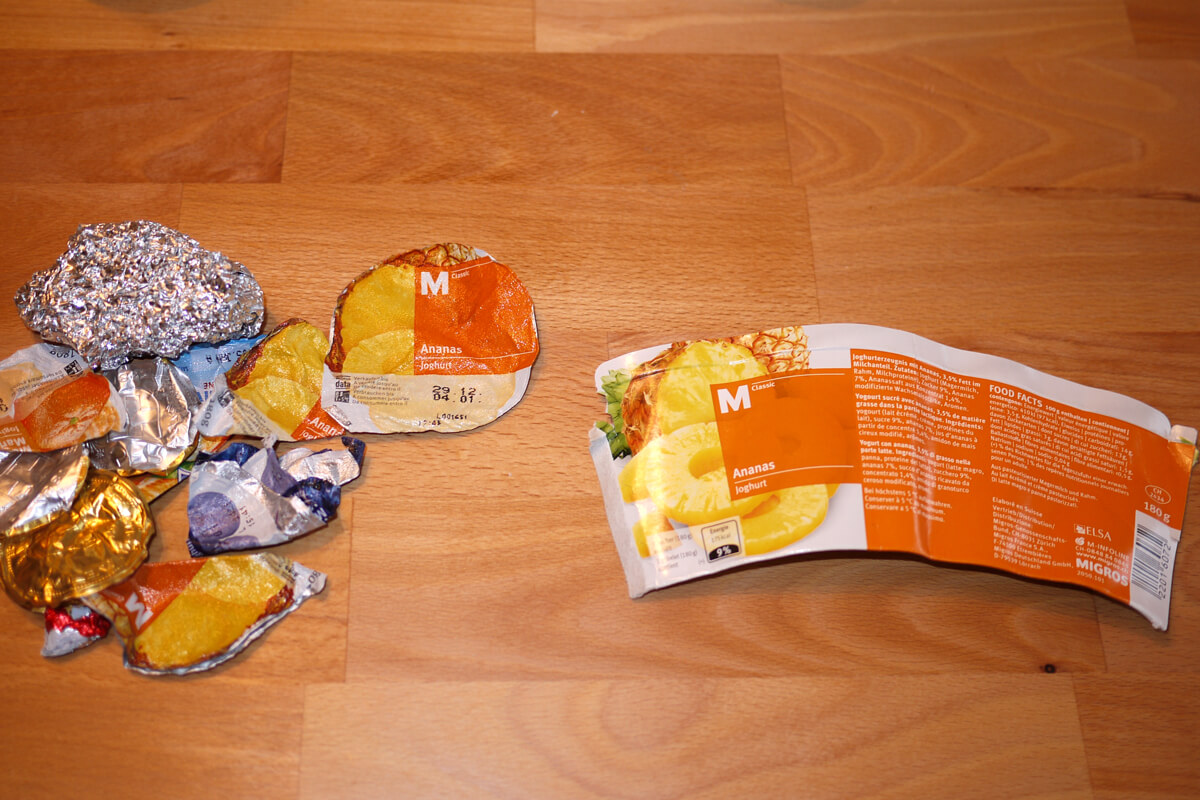
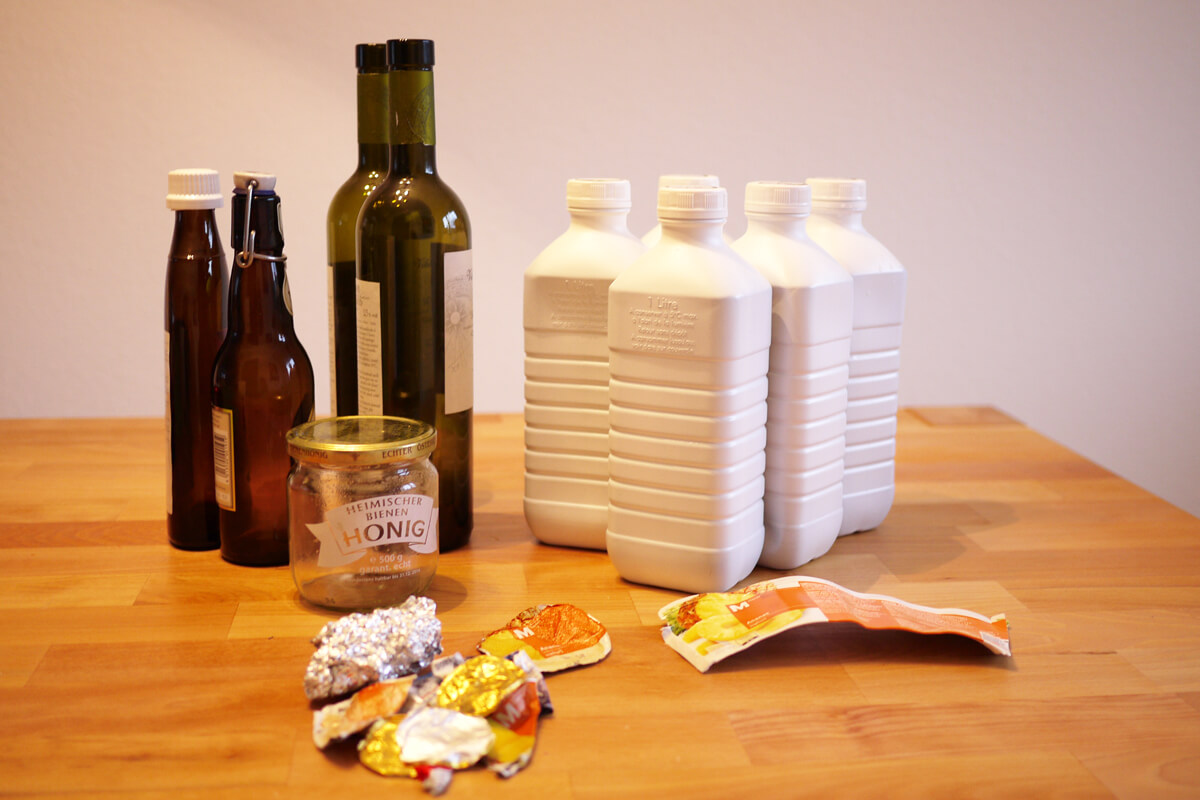
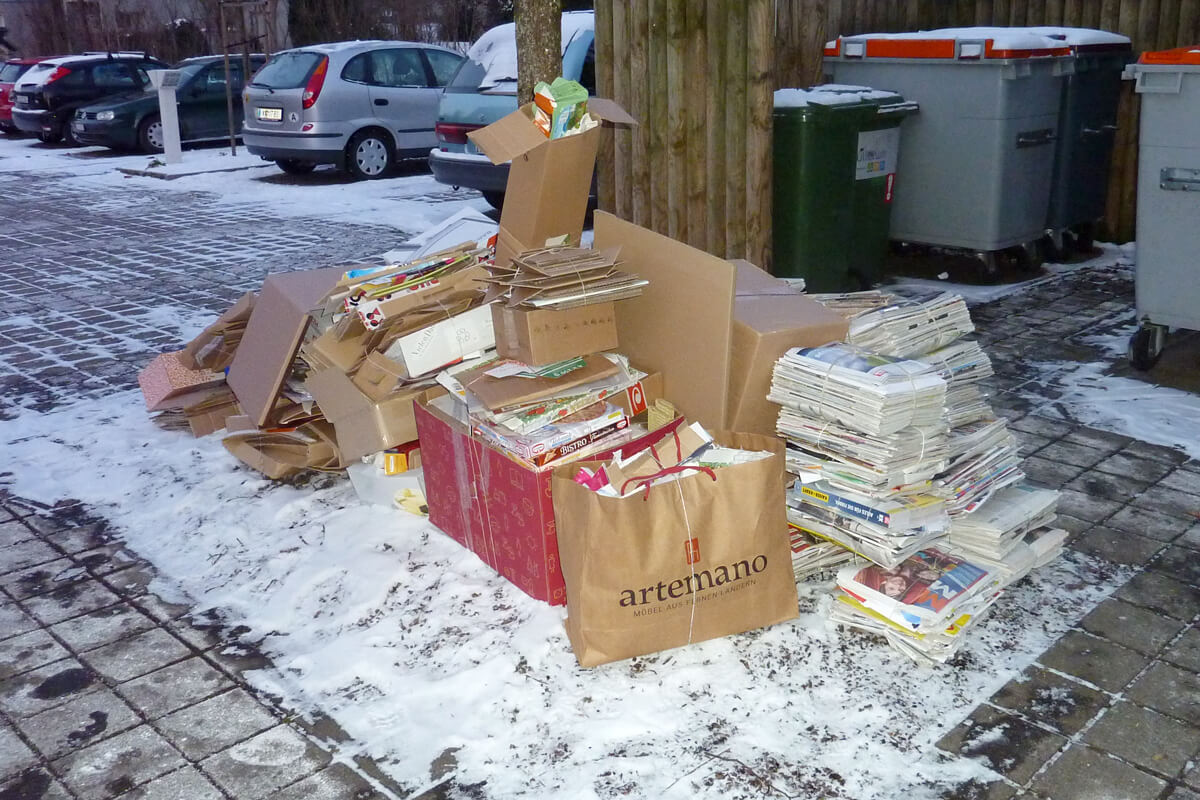




Switzerland is light years ahead of many countries – including the UK, where I come from – but still there are weird holes in the system. Where can you take TetraPak cartons? And printer cartridges? It drives me crazy when my diligent collection isn’t rewarded with a warm do-gooding glow of satisfaction at the Maag centre :-)
The planet needs more people like Mamiko, people who are willing to make the extra effort it sometimes takes to do the right thing. But let’s be honest, “most things” in Switzerland are also thrown in a dumpster. And, was it necessary to start off your post by bashing the U.S.? I am sorry to hear that Ohio is behind the times when it comes to recycling, but there are several states (at least 10) in the U.S. that have recycling programs that rival Switzerland’s. Making comparison’s between the U.S. and Switzerland doesn’t seem fair due to the sheer size difference, wouldn’t you agree?
I absolutely agree that the U.S. needs to improve it’s overall recycling habits, which at the moment are all implemented state by state, but I also see room for improvement in Switzerland as well. Even in places like Dubai, with it’s goal of being the greenest city by 2015, there is room for improvement. According to a friend who recently returned after spending a week there on a business trip. “Being green by 2015 was all these guys talked about,” my friend said. At the end of the week they took him fishing and after spending a full day at sea they proceeded to throw all of their garbage overboard. “What are you doing,” my friend asked and then half jokingly added – “you just killed a dolphin.” To this the men replied that they had really never thought about it before and that it was just a habit that was hard to break. My friend picked up an empty bucket, handed it to them and said “here, it’s your new trash can…it’s not complicated.”
Imagine what the streets of Zürich would look like if the street sweepers took the day off or how about the week off. You’d be wading through cigarette butts, redbull and beer cans. There is a serious litter issue here and only because of the tireless work of the street sweepers do most people not notice. But, it is all about where you have come from and what your expectations are. For me, watching people toss their trash on the street soured the pristine image I had of Switzerland before moving here. When it comes to littering, Switzerland is behind the times. In fact, I believe it is legal here to throw your cigarette butts on the ground or in the lake for that matter, as it is not considered littering. (note: I was told this by a swiss colleague, but have not confirmed it, but come on, if you live here would it surprise you.) Cigarette butts can take up to 10 years to decompose, never mind all the toxins they contain.
It wasn’t long ago (60’s, 70’s) that places like Lake Zürich & Geneva were extremely polluted. I mean unsafe to drink, unsafe to swim in, near zero visibility with most of the fish species having been killed off. So what made them change? How did they clean up the water? Why do they recycle? Does it have anything to do with people paying to discard their waste per bag as opposed to just paying a monthly fee to use a dumpster? Is it all about education? Does the size of Switzerland with it’s limited resources play a factor? Why don’t they recycle your yogurt cup? Why, in Switzerland, as you stated do they continue to giveaway plastic bags and not take them back to recycle? (why not contact someone at Migros or Coop and attempt to get an answer) Diving into this history a bit and trying to answer some of these questions would be interesting to read.
If you live in Switzerland you know about their recycling habits. If you don’t live in Switzerland…you probably don’t care. Unless, you just moved here or are planning to move here, then this topic might be of interest, but even for that group you have left them craving for much more concrete information.
Don’t worry people, once you get here and register at your local Gemeide you’ll be given a roughly 16 page document outlining all the things you can recycle, how you need to prepare them (tie up that cardboard) and where you have to take them. Mind you, there will be no english translation. Excited yet!
Dear Evan,
Thank you so much for your inspiring comment and for sharing your friend’s story from Dubai! There is nothing more than readers’ feedback that encourage bloggers. Thank you.
Yes, you are right about cigarette butts and beer cans on the streets in Zürich. It always scares me at the local railway station to find glass bottles of beer thrown between the rails. I really appreciate the SBB employees wearing neon orange reflective jackets who hand pick the bottles.
I think those people who litter are the ones who never had a chance to clean public places, such as picking up trash at the beach. If all Züricher, from Kindergarteners to bankers, would gather up to clean the Lake of Zurich, even once a year, I believe no one will ever litter again! Without sweating, we won’t realize how much trash is out there and how much work is involved in cleaning up.
Currently, my focus is where and how the collected recyclables are actually recycled in Switzerland. I wish my German was good enough to do research on recycling and littering history in Switzerland.
Would you be interested in covering these topics on Newly Swissed?
[…] neat-freaks, but more so, they feel a deep connection to their mountains and lakes. To the Swiss, recycling isn’t just a matter of civic duty, it is simply one part of the overall stewardship they feel […]
[…] © newlyswissed […]
[…] © newlyswissed […]
[…] © newlyswissed […]
[…] © newlyswissed […]